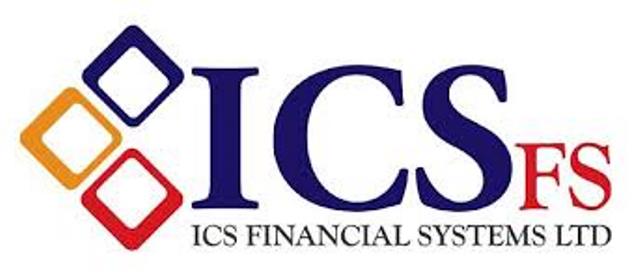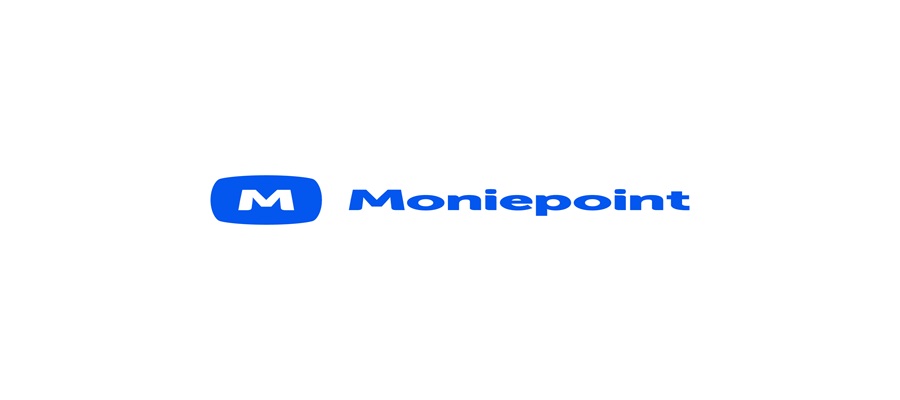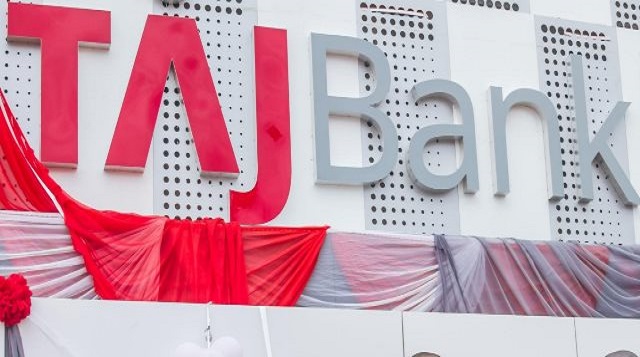E-Financial
Oromia International Bank in Ethiopia Goes Live with ICSFS’ IFB Software

ICS Financial Systems Limited (ICSFS), the global software and services provider for banks and financial institutions, and Oromia International Bank S.C (OIB), one of the most profitable banks in Ethiopia, announce the successful implementation and go-live of ICS BANKS Universal Banking and ICS BANKS Interest Free Banking (IFB)software suites, to provide OIB customers with conventional and interest free banking services at 264 physical branches having IFB and Conventional banking services in each branch across the country.
OIB is one of the most influential and popular private banks in Ethiopia and also known for pioneering Interest free banking window services.
OIB replaced its legacy system with full-fledged IFB & Conventional services from ICS BANKS Universal Banking and ICS BANKS IFB software suites, including part of ICS BANKS Digital Banking products to indulge their customers with a true omnichannel experience.
The implementation project took the Big Bang approach for 264 branches; where each physical branch consists of IFB and Conventional window services. OIB went live during July 2019, showcasing record breaking of less than 30 minutes end-of-day processing (EOD) duration in Ethiopia.
Abie Sano, OIB President, stated: “The Ethiopian banking industry is flourishing, especially in the interest-free banking sector. OIB is one of the most influential banks in Ethiopia, as we have around 2 million customers from corporate to individual, and from baby boomers to millennials.
“ ICSFS’ products and services work hand-in-hand with our philosophy and approach; to work on full-speed to offer our variety of customers a successful journey, especially as we are diving into a frictionless future.
Thanks to ICSFS’ true comprehensive offering, we are now capable on servicing each customer with their specific needs and demands. We are very excited to start our own journey with ICSFS.”
Robert Hazboun, Managing Director at ICSFS, said: “We are happy with the outcome of this project, as with no room of doubt, the successful go-live of ICS BANKS at OIB is considered one of the most seamless implementations in the Ethiopian banking industry.
This milestone proved again ICS BANKS efficiency, resiliency and high tolerance to infrastructure challenges of all kinds, while still providing the highest levels of performance with minimal infrastructure requirements.
“The implementation revealed vital performance gain that substantially enhanced the bank’s customer experience compared to the former legacy system. The success demonstrates ICS BANKS solid and agile architecture and ICSFS’s futuristic approach in utilising the latest innovative technologies to surpass the demands of any bank, of any size.”
ICSFS invests in its software suites by utilising modern technology in launching new products, constructing a secured and agile integration, and keeping pace with new standards and regulations worldwide.
ICS BANKS ISLAMIC is a modular fully integrated solution designed and developed following the principles of Shari’a in compliance with the Accounting and Auditing Organisation for Islamic Financial Institutions (AAOIFI).
ICS BANKS software suite future-proof banking activities by providing a broad range of features and capabilities with more agility and flexibility, to enrich customers journey experience, hence improving the trust and confidentiality between the customer and the bank.
ICS BANKS has always been a pioneer in utilising the latest technology to serve financial institutions. In addition to its embedded Service-Oriented-Architecture (SOA), the system can be deployed on premises or on cloud.
E-Financial
Retiree Slams N50m Suit against over Alleged Privacy Breach, Unauthorized Accounts

Abiodun Olokunjuwon, a retired civil servant based in Ibadan has instituted a N50 million lawsuit against Moniepoint Microfinance Bank at the Oyo State High Court, alleging that the fintech company opened unauthorized bank accounts in her name without her knowledge or consent.

Filed in February 2026, the suit is among the first significant cases testing the enforcement of the Nigeria Data Protection Act 2023 against a Nigerian fintech institution.
According to the statement of claim, the plaintiff became aware of the alleged unauthorized accounts only after her legitimate bank account was restricted pursuant to a garnishee order linked to a debt she denies incurring.
The restriction reportedly prevented her from accessing funds needed for essential transactions.
The claimant alleges that Moniepoint opened two separate accounts in her name using her National Identification Number (NIN) and Bank Verification Number (BVN) without proper authorization or verification.
Following the discovery, she submitted a Data Subject Access Request (DSAR) under the NDPA 2023. Documents allegedly provided by the bank, according to the suit, revealed significant verification lapses.
The plaintiff claims the accounts were opened using falsified documents, including what she describes as a fake NIN slip and contact information unrelated to her.
She further alleges that the accounts listed a Lagos residential address where she has never lived.
The suit contends that Moniepoint failed to implement adequate identity verification and address confirmation procedures before creating and operating the accounts. It further alleges breaches of statutory obligations under the NDPA 2023, including:
- Failure to ensure personal data processed was accurate and lawfully obtained
- Failure to implement appropriate technical and organizational security measures
- Failure to prevent unauthorized or fraudulent processing of personal data
The claimant maintains that these alleged lapses resulted in serious personal and financial harm.
The plaintiff is seeking N50 million in damages for emotional distress, health complications, and disruption to her financial life.
She is also asking the court to order the permanent closure of the allegedly unauthorized accounts.
No date has been fixed for hearing on the matter.
E-Financial
TAJBank Secures A1 Ratings from Agusto, Datapro

TAJBank Limited has received A1 credit ratings from Agusto & Co and Datapro, marking an upgrade from the Bbb+ rating assigned by Agusto about two years ago and placing the non-interest lender among the highest rated operators in Nigeria’s non-interest banking space.

The rating agencies attributed the improved score to the bank’s high quality balance sheet and strong earnings ratios in the 2025 financial year. The assessment also covered credit risk and operational resilience.
Despite the prevailing economic challenges, the bank was noted to have strengthened its position through operational efficiency and customer-focused services in line with ethical banking principles.
Speaking on the development during an interactive session with journalists on the sidelines of a banking stakeholders’ event in Abuja, the Founder and Chief Executive Officer, Hamid Joda, described the ratings as evidence of the bank’s focus on risk management and internal controls.
He said, “TAJBank Limited latest ratings by these reputable agencies have again validated the management’s commitment to world-class standardisation of the bank’s operations, especially in terms of innovative, real time, techno-powered services and risk management for our growing customers on a sustainable basis.”
Joda added that the bank’s priority remains the deployment of high operational standards to protect customers’ interests.
“As we have consistently maintained, our primary goal is to deploy world-class operational standards and services to protect the interest of our customers with a view to surpassing their expectations and retaining TAJBank at the leading edge of the NIB subsector on a sustainable basis.
“The message these latest best ratings by Agusto & Co and Datapro of our bank is sending to our customers, investors and stakeholders in the non-interest banking space is that with TAJBank, they can be rest assured of safety of their investments, transactions and readiness of the bank’s management to give all that it takes to grow their businesses and support their individual socio-economic wellbeing come rain or shine,” he said.
Also commenting on the ratings, the bank’s Executive Director, Sherif Idi, said the A1 scores reaffirmed management’s commitment to best practice standards.
“The A1 ratings by Agusto & Co and Datapro, the foremost ratings agencies in the country, have reaffirmed TAJBank’s management’s unwavering commitment to best practice standards through prioritisation of investment in human capital, innovative technologies and branch network expansion to consistently make our bank the preferred choice for customers in the NIB subsector of the banking sector,” he said.
E-Financial
Fidelity Bank Launches HerFidelity Apprenticeship Programme 2.0 to Boost Women Entrepreneurship

Fidelity Bank Plc, leading financial institution, has announced the launch of the second edition of its flagship women-empowerment initiative, the HerFidelity Apprenticeship Programme 2.0 (HAP 2.0).

Fidelity Bank
Designed to equip women with practical, income‑generating skills and structured pathways to entrepreneurship; HAP 2.0 will build on the success of its inaugural edition held in 2023.
Speaking with journalists at a media chat to herald the launch of HAP 2.0, the Divisional Head, Product Development, Fidelity Bank Plc, Osita Ede, explained that the initiative has been enhanced to deliver greater impact.
“HerFidelity Apprenticeship Programme 2.0 reflects our commitment to continuous improvement. Having evaluated feedback from the first edition, we have returned with stronger partnerships and deeper mentorship programmes to ensure that women acquire not just skills, but sustainable economic opportunities,” he said.
“At the heart of the programme is guided, real‑world learning. Participants will undergo intensive apprenticeship training under reputable institutions and industry experts across select fields such as hair styling, shoe making, auto mechatronics, and interior decoration,” Ede added.
He noted that HerFidelity Apprenticeship Programme 2.0 goes beyond skills acquisition by offering participants a wide range of business advisory services. These include business and financial literacy training, mentorship support throughout the apprenticeship journey, access to Fidelity Bank’s women‑focused and SME financial solutions, as well as guidance on business formalisation and growth strategies.
Further emphasising the bank’s vision, Ede said, “By integrating structured mentorship with entrepreneurial development, Fidelity Bank is positioning women not just as trainees, but as future employers, innovators, and economic contributors within their communities. This aligns with our mandate to help individuals grow, businesses thrive, and economies prosper.”
Interested participants are encouraged to indicate their interest by visiting https://bit.ly/Apprenticeshipbyherfidelity.
Ranked among the best banks in Nigeria, Fidelity Bank Plc is a full-fledged Commercial Deposit Money Bank serving over 10 million customers through digital banking channels, its 255 business offices in Nigeria and United Kingdom subsidiary, FidBank UK Limited.
The Bank is a recipient of multiple local and international Awards, including the 2024 Excellence in Digital Transformation & MSME Banking Award by BusinessDay Banks and Financial Institutions (BAFI) Awards; the 2024 Most Innovative Mobile Banking Application award for its Fidelity Mobile App by Global Business Outlook, and the 2024 Most Innovative Investment Banking Service Provider award by Global Brands Magazine. Additionally, the Bank was recognized as the Best Bank for SMEs in Nigeria by the Euromoney Awards for Excellence and as the Export Financing Bank of the Year by the BusinessDay Banks and Financial Institutions (BAFI) Awards.

 News3 days ago
News3 days agoABoICT Lecture 2026 to Focus on Impact of AI, IoT on Business Operational Efficiency

 General News3 days ago
General News3 days agoLeo Stan @ 70: Blessed and Bruised by Country, Eyes Next Disruption

 General News2 days ago
General News2 days agoZinox Technologies and TD Africa Forge Strategic Partnership to Revolutionize African Tech Ecosystem

 Telecom2 days ago
Telecom2 days agoUwaje Pays Tribute to Leo Stan Ekeh @70

 Telecom2 days ago
Telecom2 days agoCyber Immunity Emerges as Shield for Nigerians Amid Rising Scams

 E-Financial2 days ago
E-Financial2 days ago$214Bn Missing, Institutions Silent: Is Accountability Dead in Nigeria?

 General News2 days ago
General News2 days agoNITDA, Abia Partner on Enterprise Architecture Reform

 E-Business2 days ago
E-Business2 days agoInterswitch Partners Abia to Digitise Public Hospitals


























